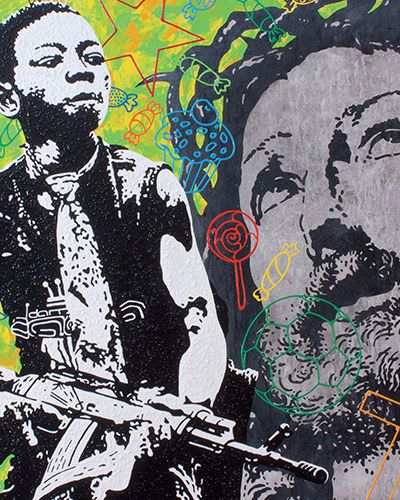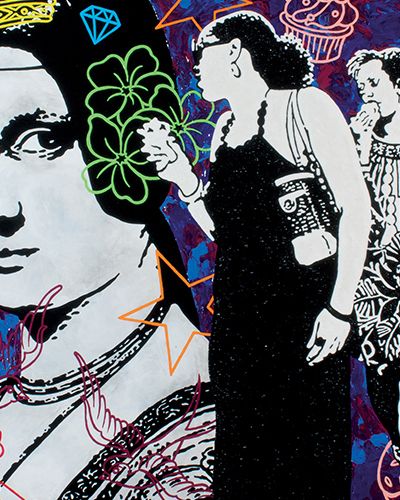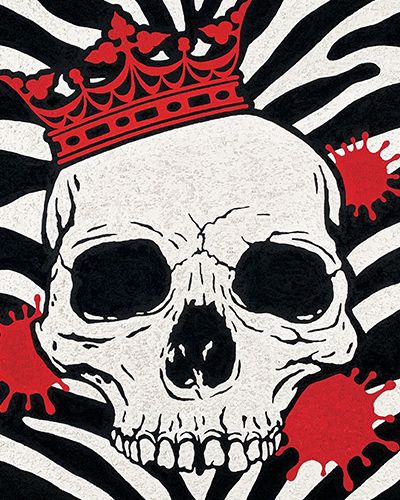Stefano Fioresi was born in Modena on July 28th 1965 and studied at ́Istituto Statale Venturi in Modena, where he obtained the Maestro d’Arte diploma in 1983, specialising in public communication, and his artistic sensitivity, his own technique, unique thanks to his expressive and versatile execution, have enabled him to gain international experience at an artistic and professional level. 1984 Afterwards, he worked for large houses in the field of artistic stained glass, an experience that gives... [Continue reading]

Stefano Fioresi
Italy
Atelier of Stefano Fioresi


























All artworks by Stefano Fioresi
Information about Stefano Fioresi
Stefano Fioresi was born in Modena on July 28th 1965 and studied at ́Istituto Statale Venturi in Modena, where he obtained the Maestro d’Arte diploma in 1983, specialising in public communication, and his artistic sensitivity, his own technique, unique thanks to his expressive and versatile execution, have enabled him to gain international experience at an artistic and professional level. 1984 Afterwards, he worked for large houses in the field of artistic stained glass, an experience that gives him the necessary technical preparation to face prestigious committees. A few years later, he has in fact realized glass plates representing scenes of the great car races for the headquarters of the Italian Automobile Club in Modena, Italy. Since 1989 he has been successfully engaged in the advertising industry, while at the same time he has been active in the field ofartistic graphics.
His favourite passionate subject is the automobile... Among the most notable commissions from this period is a series of panels for the Ferrari headquarters in Maranello, which represent the complex vision of the house with the little horse (1990). Strengthened by his experience in the advertising industry, he innovatively and newly interprets the characteristics of Pop Art of the 70s and 80s. The artist has developed a path that re-reads the syntactic and visual characteristics of mass communication and has developed a new creative approach to artistic figuration that is heading towards a “new Italian Pop Art”.
2019
MY INTERIOR
- Rathaus, Stoccarda - Germany curated by dell’Istituto Italiano di Cultura e Galleria Bech
critical texts by Chiara Canali
2018
SCRAPS OF LIFE - PEZZI DI VITA
- Castel San Zeno - Sala Austriaca, Montagnana - Italy curated by Andrea Malaman
2016
FACE TO FACE
- Galleria San Ludovico, Parma - Italy curated by Chiara Canali
2013
POP & THE CITY
- Galleria Studio C41, Paris - France curated by Elisa Bertacchini-Benzaquen
LA VIA DELL’ORO
- Centro Comunale di Cultura, Valenza (AL) - Italy curated by Roberto MIlani
CITY ADDICT
- Galleria CerrutiArte, Genova - Italy curated by Edgardo Cerruti
2012
e-VISITING MOMA
- Galleria MOdenArte, Modena - Italy curated by Maurizio Vanni
2009
PROSPETTIVE CONTEMPORANEE
- l’Arte dell’Architettura e l’Architettura dell’Arte Galleria La Contemporanea, Torino - Italy curated by Roberto Milani
2008
NIGHT ‘N’ NUIT
- Galleria San Lorenzo, Milano - Italy curated by Chiara Canali
2006
Personale nell’ambito della mostra GRANDI MAESTRI DEL ‘900
- “dalla Metafisica alla Transavanguardia”, Salone Pietro da Cemmo, Museo di Crema, Crema - Italy curated by Giulio Gallo
2006
MUSEUM
- Chiesa di Sant’Onofrio “il Fuligno”, Firenze - Italy curated by Patrizia Barlettani,
critical texts by Anna Caterina Bellati
2003
NYC - NEW YORK CITY
- Galleria Factory, Modena - Italy curated by Maurizio Sciaccaluga
2003
LARA’S FRIENDS
- Young Museum, Palazzo Ducale di Revere (MN) - Italy curated by Maurizio Sciaccaluga
1993
LE ROSSE A LA MANS
- Galleria Museo FERRARI, Maranello (MO) - Italy
PRINCIPALI MOSTRE A QUATTRO MANI
2012
BACK ON STAGE - bi-personale
- (with the artist - Fabio Govoni) Galleria Sottopasso della Stua, Padova - Italia curated by Linda Giusti
2011
GENOVA SENZA PAROLE
- memoria d’immagini a quattro mani - mostra e work in progress del pubblico (with the artist - Nicolò Paoli)
Palazzo Ducale - spazio Sala Dogana - Genova - Italy curated by Viana Conti
2009
CONNECTIONS
- evento collaterale del “FESTIVAL FILOSOFIA sulla comunità” (with the artist - Patrizia Giacobazzi)
Galleria Container, Sassuolo (MO) - Italy curated by Chiara Canali
PICTURE WITHIN THE PICTURE by Chiara Canali
The picture within the picture by Chiara Canali The theme of “picture within the picture” was represented by the surrealist artist Margritt in the work “La Condizione Umana” and then succ ess ively taken up again in his subsequent paintings. We are inside a room in front of a window showing a landsc ape. The central part iscovered by a painted canvas standing on an easel. T he work analyzes the border between reality and representation and reveals the optical illusion of the superimposition of the landsc ape on the canvas with that outside
the window. But in his works remains the mystery of the demarcation between reality and material, dream and reality, typical of Surrealism, and the motif of the “picture in the picture” returns in Stefano Fioresi’s cycle “MY INTERIOR ”, consisting of twenty large canvases that exactly reproduce the interior of a loft and rooms overlooking the Brookyln Bridge or Manhattan with the New York skyline (between which the Chrysler Building is located).However, the alienation effect of these images is not constituted by the “image within the image”, because the works of art appear natural in this environment, but because a zebra appears in all the rooms on the ground floor, immediately adapting perfectly to the black and white sc ene. Fioresi
has chosen monochrome painting for these works in order to highlight the particularities of the interior without being distracted by the colour. This painting in black and white contradicts the chromatic systemof the majority of positions in contemporary art and at the same time proposes reciprocal interactions with that of photography (which literally means “drawings through light”), which Fioresi uses as a starting point for all his subjects. Monochrome painting is also an important element in the art of the 19th century, reflecting on abstraction, playing with light, which each time produces new and surprising aspects of the black and white phenomenon: from Malevic in Op-Art to the Drip-Painting JacksonPollock, or the paintings
of John, which suggest collages from newspapers, as well as the experiments of many other protagonists such as Gerhard Richter, who show us unusual aspects of the world in black and white.Consequently, the zebra, alien and decontextualized element of his work, becomes an opportunity to reflect once again on the metalinguistics that art can achieve, at a stage when the artist’s choice of monochrome representation reveals his inclination for a strong and express ive code as a meaningful characteristic and meaning of his art. The representation of Fiorese, inspired by Margritt, evokes the disc oncertment of man with reality, or what might appear to be reality, in a constant game of ambiguity as to what belongs to it and what is unreal, because, starting from the world of images, it is plausibly but completely out of place. Moreover, there is nothing symbolic in Fiorese’s works except the will to tell about everyday life and at the same time the life of the paintings, as Magritt also clearly confirms: “When people try to find meaningful symbols with which I
paint, they want to find something secure to hold on to in order to esc ape from emptiness . The People who seek significant symbols are incapable of seeking the poetry and mystery hidden in the images”. in “My Interior” not only is the interior unilaterally viewed through Fiorese’s photographic lens, it also functions as a filter to the world around us.the art of Fiorese recalls the value of images that are not only at the service of reality, it also invokes its autonomy: The zebra is the element that breaks up the two-dimensional space of the canvas and invites us to go further, to look at the familiar relationships between real life and that represented by iconography, in order to read a reality that has deeper dimensions than those that sustain our lives today.











